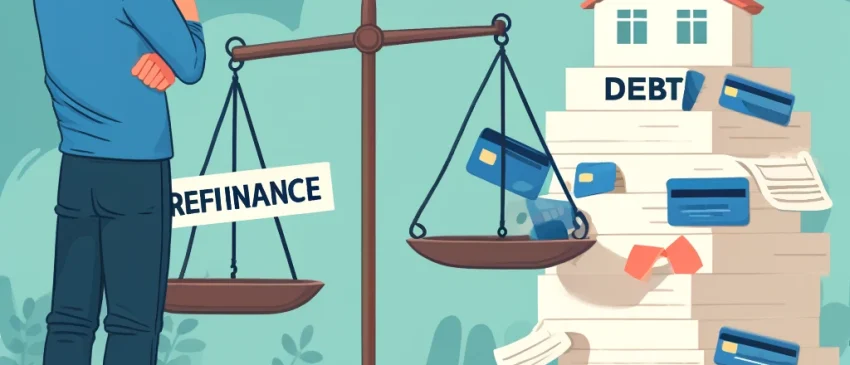Navigating Financial Waters: When Refinancing Might Be Smarter Than Sticking with Low Rates
In an era of fluctuating economic landscapes, securing a low mortgage rate has been a major win for many homeowners. However, this apparent victory can sometimes mask underlying financial strains, particularly when debt from other sources begins to pile up. In this blog, we’ll explore why homeowners, even those who’ve locked in extremely low rates, might still find themselves drowning in debt, and how a strategic refinance could be a lifeline. Find out how much you can save by refinancing your debt with Smart Mortgage Centers at (888)842-7272.

The Allure of Low Mortgage Rates
Initially, obtaining a mortgage with a low interest rate feels like a significant achievement. It often results in lower monthly payments, making a home purchase seem more affordable and freeing up income for other expenses or savings. However, this scenario doesn’t always account for the full picture of an individual’s or family’s financial health.
The Hidden Depth of Debt
For many, other forms of high-interest debt such as credit cards, personal loans, or car loans continue to accrue, often overshadowing the benefits of a low mortgage rate. The reality is that while mortgage payments may be manageable, the cumulative burden of additional high-interest debts can create a financial scenario that feels untenable. This is where the concept of “weighted interest” comes into play.
Understanding Weighted Interest
Weighted interest calculates the overall rate you pay on all your debts, weighted by the amount of each debt. For instance, you might have a mortgage at 3% interest carrying a balance of $300,000, and credit card debt at 20% interest with a balance of $15,000. Even if the mortgage has a low rate, the high interest on the credit card debt can disproportionately affect your overall financial health.
The Case for Refinancing
Refinancing can sometimes offer a surprising solution. Here’s how it might work:
- Consolidating Debts: By refinancing, homeowners might have the opportunity to consolidate their high-interest debts into their mortgage. This action can dramatically reduce the weighted average interest rate across their debts.
- Cash-out Refinance: This involves refinancing your mortgage for more than you owe and taking the difference in cash. It can be used to pay off high-interest debts, effectively lowering the overall interest burden.
- Improving Cash Flow: Reducing the monthly outflow towards debts by consolidating them under a single, lower interest rate can free up cash for savings, investments, or other financial needs, improving overall financial stability.
Considerations Before Refinancing
While refinancing can be beneficial, it’s not a one-size-fits-all solution. Homeowners should consider:
- Closing Costs: Refinancing isn’t free. Closing costs can range from 2% to 5% of the loan amount.
- Longer Term Debt: Spreading debt over a longer period may lower immediate payments but can increase the total amount paid in interest over time.
- Impact on Credit Score: Opening a new mortgage account can impact your credit score temporarily. It’s important to weigh this against the potential benefits.
Final Thoughts
Homeowners enjoying low mortgage rates should give themselves a financial check-up to assess their overall debt situation. If you find yourself struggling with high-interest debts despite a low mortgage rate, refinancing might be a wise choice. By considering the weighted interest across all debts, homeowners can make informed decisions that potentially ease financial pressures and lead to long-term savings.
In conclusion, while securing a low mortgage rate is certainly beneficial, it’s crucial to assess and manage your overall debt portfolio proactively. Refinancing could be a strategic move to regain control of your financial health and ensure that your home is a blessing, not a burden. Call Smart Mortgage Centers for Free 10 minute Quote at (888)842-7272.



No Comments
Be the first to start a conversation